Introduction:
As we age, our immune systems undergo changes that can affect how we respond to vaccinations. It is crucial to understand the specific effects of age on vaccination response to ensure optimal immunity in older people. By delving into the intricacies of age-related immune changes and tailoring vaccination strategies accordingly, we can bolster protection and improve overall health outcomes. Join us as we explore the significance of understanding age-related vaccination response and its implications for promoting the well-being of older individuals.
- The Aging Immune System:
The immune system naturally undergoes changes as we age, a process known as immunosenescence. These changes can impact the body’s ability to mount a robust immune response to infections and vaccinations. Key factors contributing to immunosenescence include decreased production of immune cells, diminished immune cell function, and altered signaling pathways. Understanding these age-related changes is vital in designing effective vaccination strategies for older individuals.
- Vaccination Challenges in Older Adults:
Older adults, particularly those aged 65 and above, are more susceptible to infectious diseases due to age-related immune decline. Vaccinations play a crucial role in safeguarding this vulnerable population. However, some vaccines may be less effective in older individuals due to reduced immune responsiveness. This necessitates a deeper understanding of how age impacts vaccination response to ensure adequate protection against pathogens.
- Tailoring Vaccination Strategies for Older Adults:
To enhance vaccination response in older individuals, several strategies can be employed. These include the use of high-dose vaccines that contain a greater antigen concentration to stimulate a stronger immune response. Adjuvanted vaccines, which incorporate immune-stimulating substances, can also boost immunity in older adults. Furthermore, optimizing the timing of vaccinations, such as administering them during the period of the day when immune responses are more robust, may enhance their effectiveness.
- Addressing Specific Vaccine Challenges:
Certain vaccines pose unique challenges in older populations. For instance, the influenza vaccine may offer reduced protection due to the age-related decline in antibody production. To tackle this, newer vaccine formulations are being developed, such as high-dose and quadrivalent vaccines, which target multiple strains of the influenza virus. Similarly, the effectiveness of vaccines against diseases like pneumococcal pneumonia and shingles is being assessed in older adults to ensure maximum efficacy.
- Future Directions and Research:
Continued research is essential to further our understanding of age-related changes in vaccination response. Ongoing studies aim to unravel the mechanisms underlying immunosenescence and identify novel approaches to boost vaccine effectiveness in older individuals. Additionally, advancements in personalized medicine and the development of age-specific vaccine formulations hold promise for tailoring vaccination strategies to meet the unique needs of older adults.
Conclusion:
Understanding the impact of age on vaccination response is crucial for ensuring robust immunity in older individuals. By recognizing the challenges posed by immunosenescence and tailoring vaccination strategies accordingly, we can enhance protection against infectious diseases and promote better health outcomes in older populations. Through ongoing research and advancements in vaccine development, we can unlock new approaches to bolstering immune responses in older adults, paving the way for healthier and more resilient aging populations.
